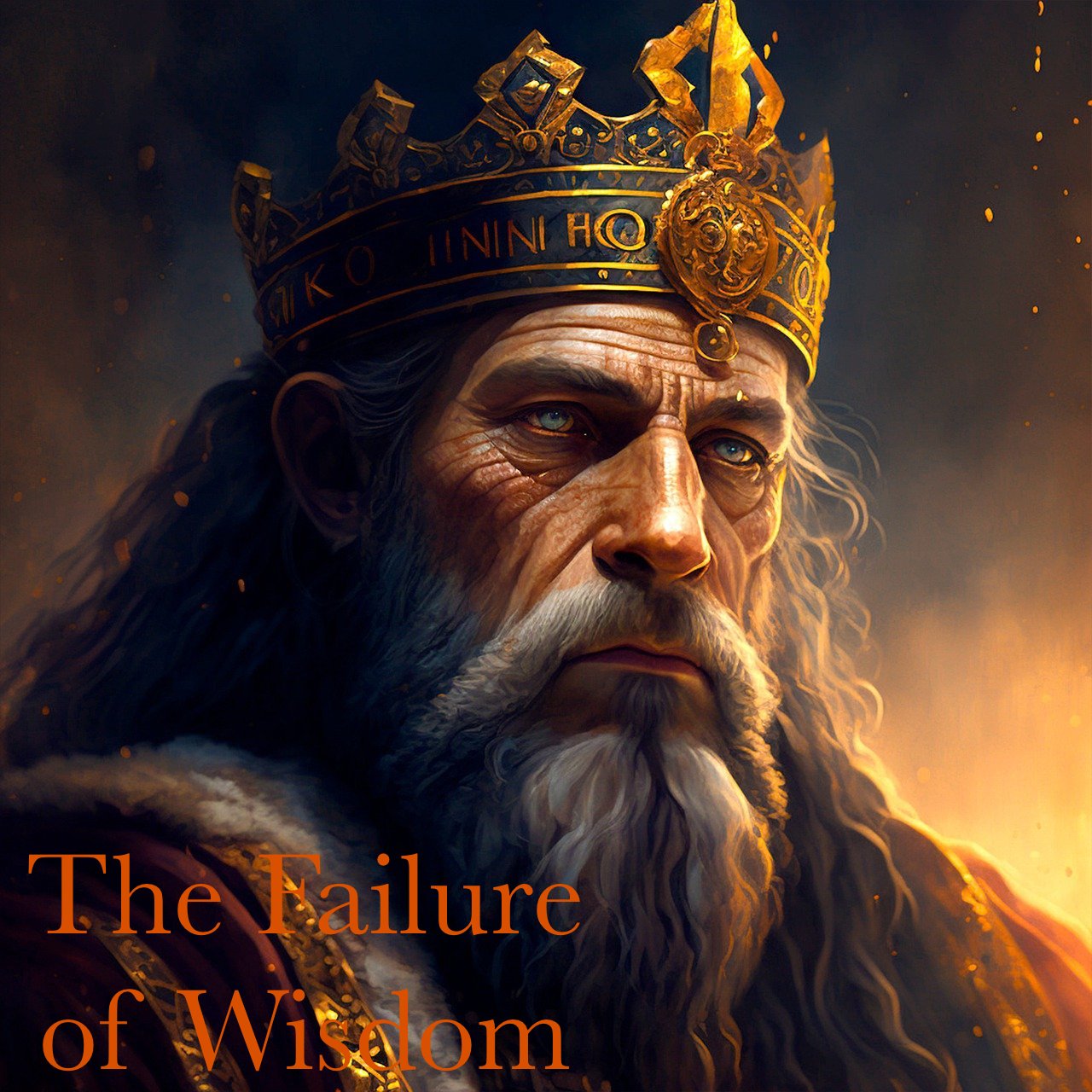Solomon writes Proverbs to his son, the king-in-waiting. Rehoboam was the son that succeeded Solomon on the throne, so it is safe to assume that he was a primary focus. A common thread between both father and son is that neither lived up to the wisdom encouraged in Proverbs. Solomon warned his son about Harlot Folly with all her wiles, yet he allowed women to turn his heart from Yahweh (1 Kg 11:1-3). Rehoboam was taught to listen to the aged, yet he took the counsel of his peers, a sort of power-hungry gang of blood-thirsty tyrants as described in Proverbs 1. What happened? How could Solomon, of all people, who prayed for and was granted wisdom by God, turn from that wisdom to live as he did?
Since teaching through Proverbs, I have been asked this question several times. I don’t have all the answers, but I will venture to answer the best I can. The first answer has to do with a theological theme that runs through Scripture, and the second has to do with man’s fallen nature.
One prevalent theme in Scripture is the inadequacy of everything in the old creation under Adam. Everything from the time of the fall up to the time of Jesus is anticipatory, a type and shadow that looks to its substance in Christ (Col 2:17). Types and shadows aren’t evil, but they are weak because of the flesh, fallen humanity (Rom 8:1-3). God’s Law, for instance, is a type and shadow. The Law of God is perfect. It is holy and just and good (Rom 7:12). However, the Law is powerless to ultimately cure the death of sin through the needed resurrection life (Gal 3:21). The Law is good; it is good as it reflects the character of God and remains useful for us, but it is inadequate because it was not created to bring the promised life.
The wisdom embodied in Solomon is old creation wisdom. Solomon and his wisdom anticipate Wisdom-to-come, one greater than Solomon (Matt 12:42; Lk 11:31). Solomon is a type and shadow and, like other types and shadows, his wisdom, though good, holy, and just is ultimately weak through the flesh. Solomon is one embodiment of the inadequacy of everything in the old creation.
The other aspect of Solomon’s failure is his fallen humanity. Solomon, though wise beyond any other human, was still corrupted by sin. I understand the amazement at a biblical writer gifted by God with wisdom drifting from the faith, but really, it is not all that remarkable. People who have access to greater wisdom than Solomon have and continue to reject that wisdom, choosing to sin. The incarnate Son of God chose Judas Iscariot as one of the new foundation stones for the New Jerusalem. Jesus gave him authority to cast out demons and heal the sick. How could he choose to betray Jesus? We know from what is revealed by Jesus that this was his predestined fate. We could say that for Solomon and everyone else as well because all things are worked according to the counsel of God’s will (Eph 1:11). For some, that is the only answer we need. For others of us who want to understand the human responsibility side a bit more, we want to know how this happens, possibly so we can avoid it ourselves. That’s fair. All the exhortations in Scripture, including the ones in Proverbs, assume our personal responsibility for our choices.
Sin worked in Judas and Solomon as it does in you and me. The problem is not an intellectual or a wisdom problem. It’s a heart problem. You can know how everything is supposed to be and still not desire it as you ought. You won’t do what is wise if you don’t desire it.
Sin begins to mature into the nasty monster you see in Solomon and Judas when it is not cut off immediately through confession and repentance. No matter how much wisdom you have, if your affections aren’t disciplined, your heart is drawn to sin, and then, before you know it, it has grown out of control. In fact, the presence of wisdom or general biblical intelligence may contribute to this. You think you know it all. You think you have everything figured out and that you are untouchable. Pride, the ever-present monster in the heart, makes you think you can take chances that lesser people can’t handle. You think, for example, that you will be the strong man who can tame Harlot Folly, but she has taken down many a mighty man (Pr 7:24-27). If pride takes hold, you are her next victim. That you can be sure of.
God writes the story in which Solomon is one of the characters that show the limits of old creation wisdom. Wisdom can’t put the world together the way it needs to be. That waits for Christ Jesus, who is the Wisdom of God (1 Cor 1:30). Jesus is the end, the telos, of wisdom, just as he is the end, the telos, of the Law (Rom 10:4). He is greater than Solomon.
However, Solomon’s life remains a warning to us all. No matter your maturity, your wisdom, or your biblical knowledge, you are a sinner and capable of falling. Let him who thinks he stands take heed lest he fall (1 Cor 10:12).
Image by Ronald Sandino from Pixabay













